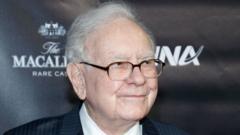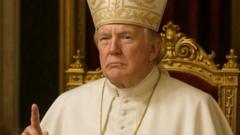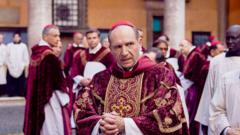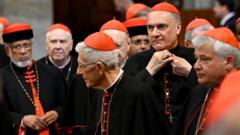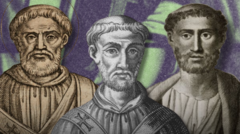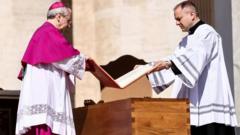The upcoming conclave to select the next pope highlights a significant ideological split among cardinals, mirroring global political divides. The choice of the next pontiff could determine the direction of the Catholic Church, weighing inclusivity and openness against tradition and conservatism.
Debating the Future: The Ideological Divide in the Vatican Ahead of Papal Succession

Debating the Future: The Ideological Divide in the Vatican Ahead of Papal Succession
As cardinals prepare to elect a successor to Pope Francis, the discussions surrounding change versus continuity reveal deep ideological divides within the church.
As the cardinals convene in Rome for the imminent papal conclave, the ideological landscape within the Vatican resembles the polarized political arenas seen globally. The discussions echo the broader left-right divides familiar to many, with some conservative Catholic leaders critical of Pope Francis’ progressive stance, which garnered widespread admiration from liberal circles worldwide.
However, the distinctions between progressives and conservatives within the Catholic hierarchy are not as straightforward as in secular politics. Many of the principles which characterized Francis as a liberal—including his commitment to the welfare of migrants and the impoverished—are deeply rooted in the church's doctrine, emphasizing humanitarian aid as a core value.
The outcome of this electoral process seems to transcend individual policy preferences, converging around a fundamental existential question: Should the Catholic Church embrace Francis’ legacy of openness and inclusivity, or lean towards more traditional doctrines? According to Anna Rowlands, a political theologian from Durham University, Pope Francis navigated through a divided era by advocating for dialogue even amidst stark disagreements.
Rowlands further warns of a potential risk that the church could drift into absolutism, undermining the essential discussions necessary for its evolution. Thus, the cardinal's electoral decision will not only reflect immediate issues but also a broader philosophical consideration of who should influence the church's path moving forward. The forthcoming papal election could reshape the church's identity and influence in an increasingly complex world.




